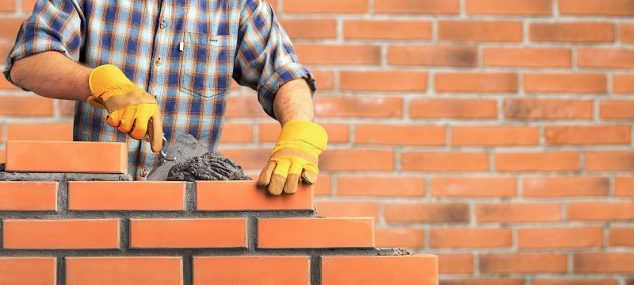When it comes to preserving the structural integrity and aesthetic value of your home or building, masonry repair is an essential investment. From crumbling bricks to deteriorating mortar joints, neglected masonry can lead to major damage over time. That’s why choosing the right masonry repair contractor is critical—not just for getting the job done, but for ensuring it’s done correctly, safely, and efficiently. This guide walks you through the essential steps to help you make an informed choice.
Why the Right Contractor Matters
Hiring a skilled masonry repair contractor can make the difference between a long-lasting, high-quality restoration and a temporary patch job that could cost you more in the long run. An experienced contractor brings knowledge of materials, building codes, weather impact, and proper techniques to maintain your property’s structural and visual appeal. Additionally, poorly executed repairs may not just look bad—they can also reduce the value of your home and compromise safety.
Determine Your Masonry Repair Needs
Before you begin searching for a contractor, it’s important to identify what type of masonry repair you need. Common issues include:
Cracked or Spalling Bricks
Water infiltration, freeze-thaw cycles, or age can lead to cracks and surface flaking. These issues need specialized techniques to ensure durability and appearance.
Mortar Joint Deterioration
Mortar often degrades faster than the bricks themselves. Repointing is a common repair that involves replacing old, crumbling mortar with new material that matches the original in color and strength.
Chimney and Wall Restoration
Chimneys, retaining walls, and other structures often require repair due to long-term exposure to the elements. You may need structural rebuilding, not just cosmetic fixes.
Understanding these issues can help you explain your concerns more clearly to potential contractors and evaluate their proposed solutions effectively.
Do Thorough Research
Ask for Recommendations
Start by asking friends, neighbors, or coworkers if they’ve had any masonry work done and were satisfied with the results. Personal referrals are often the most reliable.
Check Online Reviews and Ratings
Websites like Google, Yelp, and Angi provide customer reviews and ratings. Look for consistently high ratings, and pay attention to how the contractor responds to negative feedback.
Verify Credentials
Ensure that the contractor is licensed, insured, and bonded. This not only confirms that they meet industry standards but also protects you from liability in case of accidents or damage during the project.
Evaluate Experience and Specialization
Not all contractors are equal, especially when it comes to masonry repair. Some specialize in residential repairs, while others focus on commercial or historic buildings. Ask:
- How many years have you been in the masonry repair business?
- Do you specialize in the type of repair I need?
- Can you show before-and-after photos of similar projects?
Contractors with a portfolio and deep expertise in your type of project are far more likely to deliver satisfying results.
Request Multiple Quotes
Don’t settle for the first contractor you speak with. Contact at least three and request detailed, written estimates. A proper quote should include:
- Scope of work
- Types of materials to be used
- Estimated start and completion dates
- Payment schedule
- Warranty or guarantee terms
Be cautious of unusually low bids—they may signal subpar materials or rushed workmanship.
Interview the Contractor
A face-to-face meeting or video call gives you a better feel for the contractor’s professionalism and communication style. Ask specific questions like:
- Will you be doing the work yourself or subcontracting it?
- What is your project timeline?
- How will you protect surrounding landscaping or property features?
- Can you provide references?
A reputable contractor should be willing and able to answer all your questions confidently and transparently.
Check References and Past Work
Always ask for and follow up on references. Contact at least two previous clients and ask about:
- Quality of work
- Professionalism and punctuality
- Cleanup and property care
- Final costs vs. original estimate
If possible, visit a completed project or request high-quality images to assess the craftsmanship.
Consider Materials and Techniques
Proper masonry repair requires attention to material compatibility. Using incorrect mortar or bricks can damage a structure or create an unsightly patchwork. Ensure the contractor:
- Matches original materials as closely as possible
- Uses weather-appropriate techniques
- Understands how to blend new work with old seamlessly
For historic buildings, this step is especially crucial to maintain architectural authenticity.
Review Contract and Warranty
Never proceed without a written contract. It should clearly outline:
- Full scope of work
- Detailed cost breakdown
- Payment terms and timeline
- Cleanup responsibilities
- Warranties for workmanship and materials
Also, ask what kind of warranty they offer. A good masonry repair contractor will back their work with at least a 1-year warranty, and many offer longer.
Trust Your Instincts
Lastly, trust your gut. If something feels off—whether it’s rushed communication, unclear pricing, or evasive answers—don’t ignore it. The contractor will be working on a visible, valuable part of your home or business. You need to feel confident in their reliability, honesty, and skill.
Conclusion
Choosing the right contractor for masonry repair isn’t just about price—it’s about quality, trust, and long-term value. By thoroughly vetting potential contractors, understanding your repair needs, and insisting on clear communication and documentation, you’ll be well-positioned to restore your structure’s integrity and charm with confidence.
